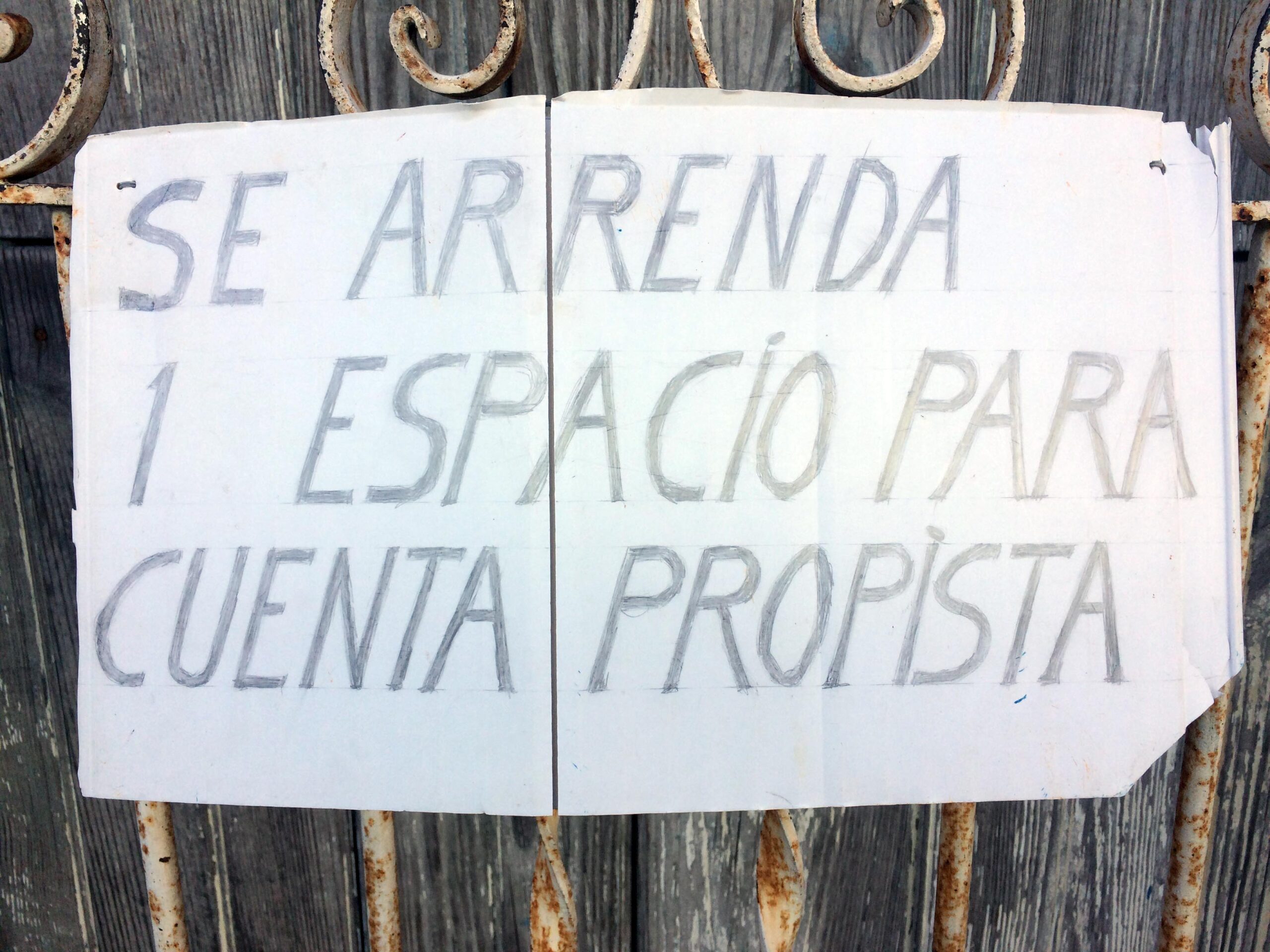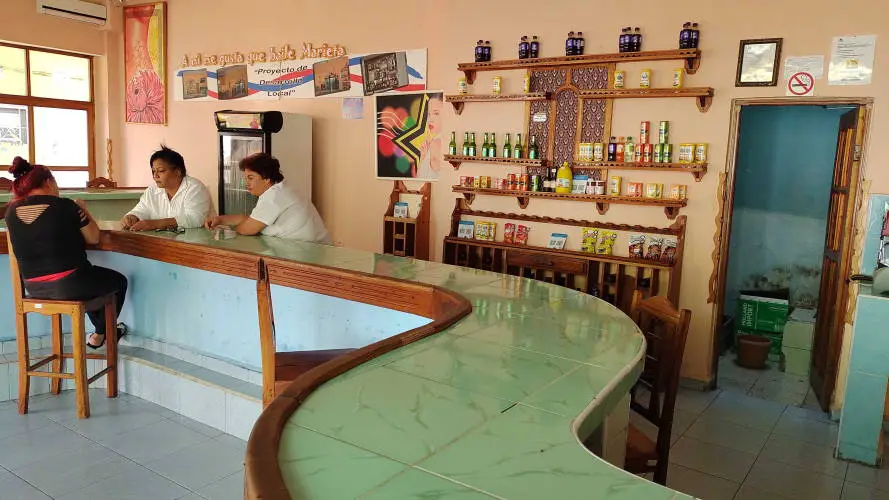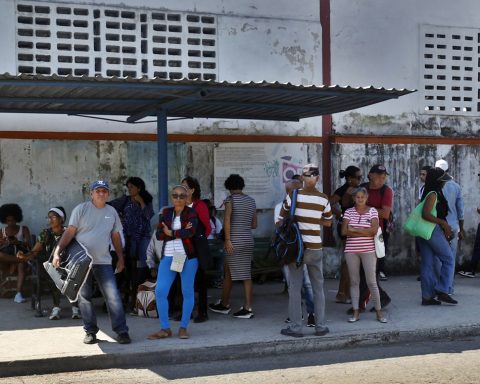HOLGUIN, Cuba. — “This place must not be good. There are no customers, ”a man tells his couple while they look at the empty tables outside the EGREM House of Music, a state-owned venue in the city of Holguín leased to the private sector.
The offer, displayed on a blackboard at the entrance, was abundant and attractive. Chicken, pork and fish in different modalities stood out as main courses and with prices between 500 and 750 pesos.
“I can pay, but I’m worried that there’s no one here on a Saturday night,” says the man.
An employee was seen sitting with a cell phone in her hand and a cook in the background who did not attend to them. The couple decided to find another site.
Attempts to improve gastronomy in Cuba have failed
He self-employment in 2010, the creation of micro, small and medium enterprises (MSMEs) and the self management and the leasing of state establishments in 2022. Each measure had a happy start, but over time they have lost their effectiveness.
Poor quality, abuse, theft and fraud are negative indicators that the private business has inherited from the state gastronomy. Among the causes of failure are the lack of a wholesale market, the scarcity of products, the obstacles to direct importation and the decimated skilled labor force due to the mass exodus. Clients continue to suffer the repeated ills of more than 60 years that have weighed down the sector.
“There is an imbalance of flavors. Food is overly seasoned and sometimes undercooked. We have been in several paladares (private restaurants) and we are disappointed. There is no quality in the proposal, ”says Michael, who together with his wife and friends have visited most of the private restaurants in the city.
He adds that it is common that there are no dishes for sale that are written on the menu card. “That is an oversight that leaves a lot to be desired. The owner or the person in charge has to be attentive and remove an out-of-stock dish from the menu. Sometimes they even open with a letter that doesn’t reflect the real offer,” says Michael.
Variety and exclusivity also fail in private gastronomy
“All palates have the same offer. There is no specialization. You went to one and it is as if you had gone to all of them”. Michael found the solution to his disappointment: “I have hired a cook at my house and that way we avoid disagreements in restaurants.”
The lack of products and the non-existence of a wholesale market limit private management. “There is a shortage. It is very difficult to acquire the ingredients to achieve variety and good preparation. When the onion is not missing, the chili, the garlic, the vinegar, the oil are missing. Something similar happens with meat, grains and vegetables. We have to cook with invented and expensive seasonings. That is why there is an imbalance between quality and price. No restaurant in the city is spared from that. We would like to offer the best, haute cuisine, but the scarcity of ingredients does not allow us, ”he declared to CubaNet a chef from a palate in Holguín who preferred to remain anonymous for fear of being fired.
The service also influences the decline of private gastronomy. The delays in the delivery of the menu card, in taking the order, at the time of serving and even in bringing the bill devalue the sector.
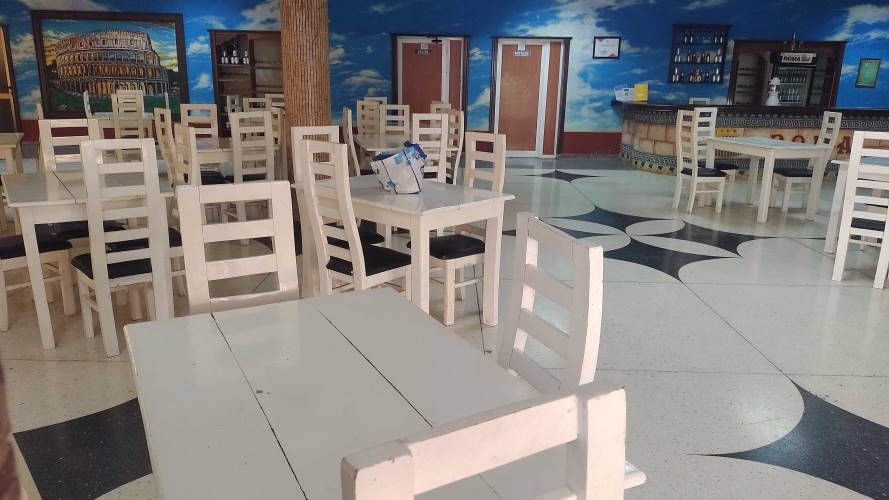
The unprecedented exodus is one of the causes of this evil. Professionals have decided to emigrate for economic and political reasons.
A total of 177,848 Cubans arrived in the United States by land between the 1st. October 2021 and the closing of July 2022, according to a report issued by the Department of Customs and Border Protection (CBP).
According to data from the Center for Demographic Studies of the University of Havana, the majority of Cubans who emigrate They are between the ages of 19 and 49 and have high qualification levels, something that is lacking in many workplaces in the country.
“Many of my workers have emigrated. Two of my best cooks and other valued employees left. I have to hire what appears that they generally have no preparation and learn as they go. That determines the quality”, acknowledges the owner of a palate.

The decline of restaurants and private gastronomic businesses goes through the demotivation of employees. “I don’t try. The salary does not cover my needs. The owner increases menu prices and only he benefits. The salary keeps us the same and the cost of living rises more every day. It is true that this is better than working with the State, but I have been in the kitchen of a private restaurant for three years and I am still paying rent where I live with my wife and two children. I have not been able to raise the money to buy a house. And the way things are going I’ll never make it. I am demotivated just like my colleagues and my colleagues who work in other private premises”, laments a chef from a palate who identified himself as Mario.
He confesses that, although it is forbidden, he brings food to his house. “Everything on the street has gone up in price. It hurts me that I am a cook and that my children cannot eat in the restaurant where I work because it is very expensive, ”he alleges.
Poor quality also prevails in private take-out places: soft drinks with too much water and small, tasteless pizzas are the order of the day. The poor quality of the raw material with which the product is made bears the blame.
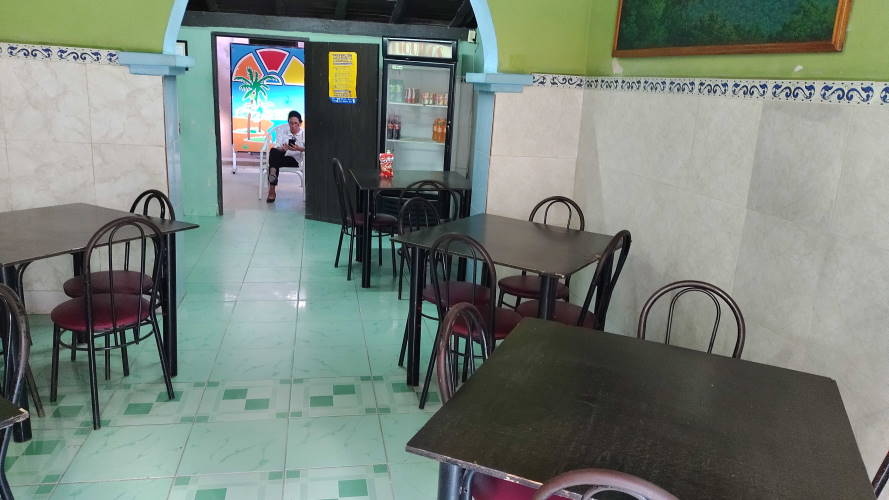
The few, unbalanced and poorly prepared gastronomic offerings have led experts to rightly assert that Cubans lack culinary culture. “In all these years full of scarcity and high prices, the majority of the town has not pleased the palate,” says Mario.
The lack of resources and its inability for a successful management forced the Cuban regime to approve decree 28/2020 of the State Management Model of the Gastronomic Unit of Local Subordination.
Published in the first number of 2021 of the Official Gazette of the Republic of Cuba, the provision establishes that the gastronomic unit is managed with commercial, economic and financial autonomy, that it covers its expenses with its income, generates profits and makes administration management more flexible.
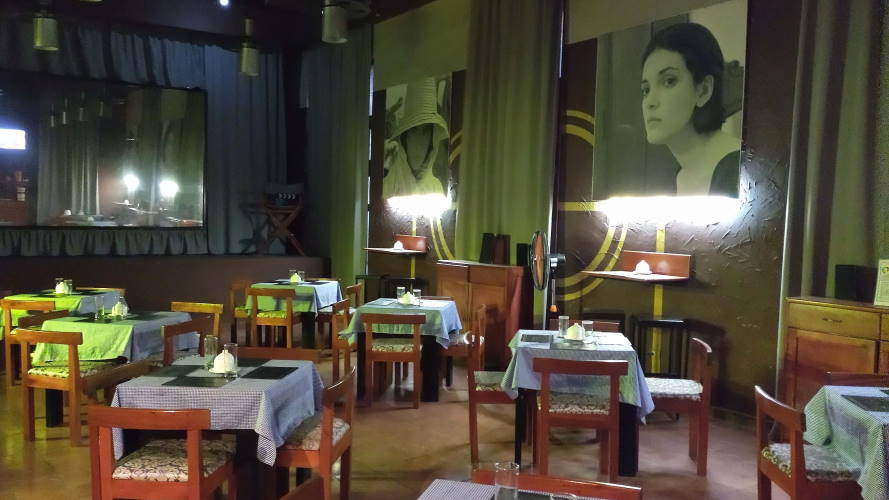
“Such an opening will allow, for example, that the person designated in front of said unit can sign economic contracts with the suppliers of goods, as well as approve prices and retail rates of the products and services that are marketed,” said Betsy Díaz Velázquez, Minister of Domestic trade.
Two years after its approval, the Decree has been a fiasco. Not only did the management of the places that they started fail, there have also been many establishments that are now closed due to lack of resources while waiting to be opened under the aforementioned provision.
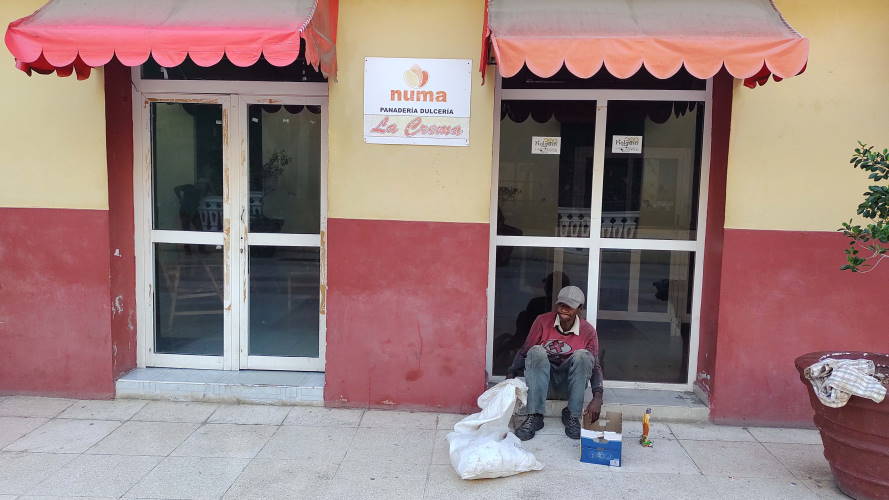
“It is sad to see closed premises with excellent conditions such as the El Níquel cafeteria, El Rincón de Romerías, and the La Crema candy store because the State does not have resources. They have been proposed for leasing or self-management, but nobody wants them because there are many obstacles and shortages to start a business. Potential tenants have very few options for purchasing the products. There is no coffee, there is no oil, there is no rice, there is no flour… there is nothing. I want to rent a place, but most of the things can only be found in the informal market, and if I buy them there I run the risk of being fined for not having the proof that the sale was legal”, says Manuel , a former state gastronomy administrator.
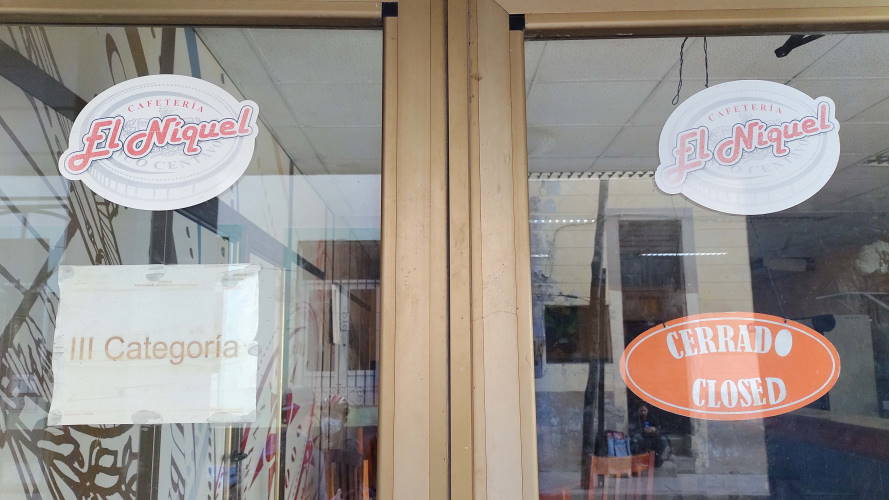
There are no customers and three employees “kill” time chatting in La Marieta, a central cafeteria that is self-managed. A lady enters and reads the offers displayed on a blackboard hanging on the wall. Prices range from 40 pesos for a cassava with salami to 400 for biscuits and soda. “Everything is very expensive, I don’t know what business they do here if they don’t sell anything,” says the lady who decides to leave, while the saleswomen continue with her lively chat.
The Las Tres Lucías coffee and the La Tinaja creamery still belong to the state Gastronomy Company, but the high prices and the meager offer mean that these places do not have customers.
The Roma pizzeria is in a similar situation. A spacious and comfortable place that exhibits empty tables as an indicator of the failure of the self-management modality.

In the emblematic La Cubita cafeteria, another leased premises, the bulk soft drink warehouse is empty. There’s also no coffee, a once-star product at the facility. Their offers have been very unstable and with unpopular prices.
The expensive and insufficient gastronomic offers have made the center of the city of Holguín, one of the most populated province capitals in Cuba, inhospitable.
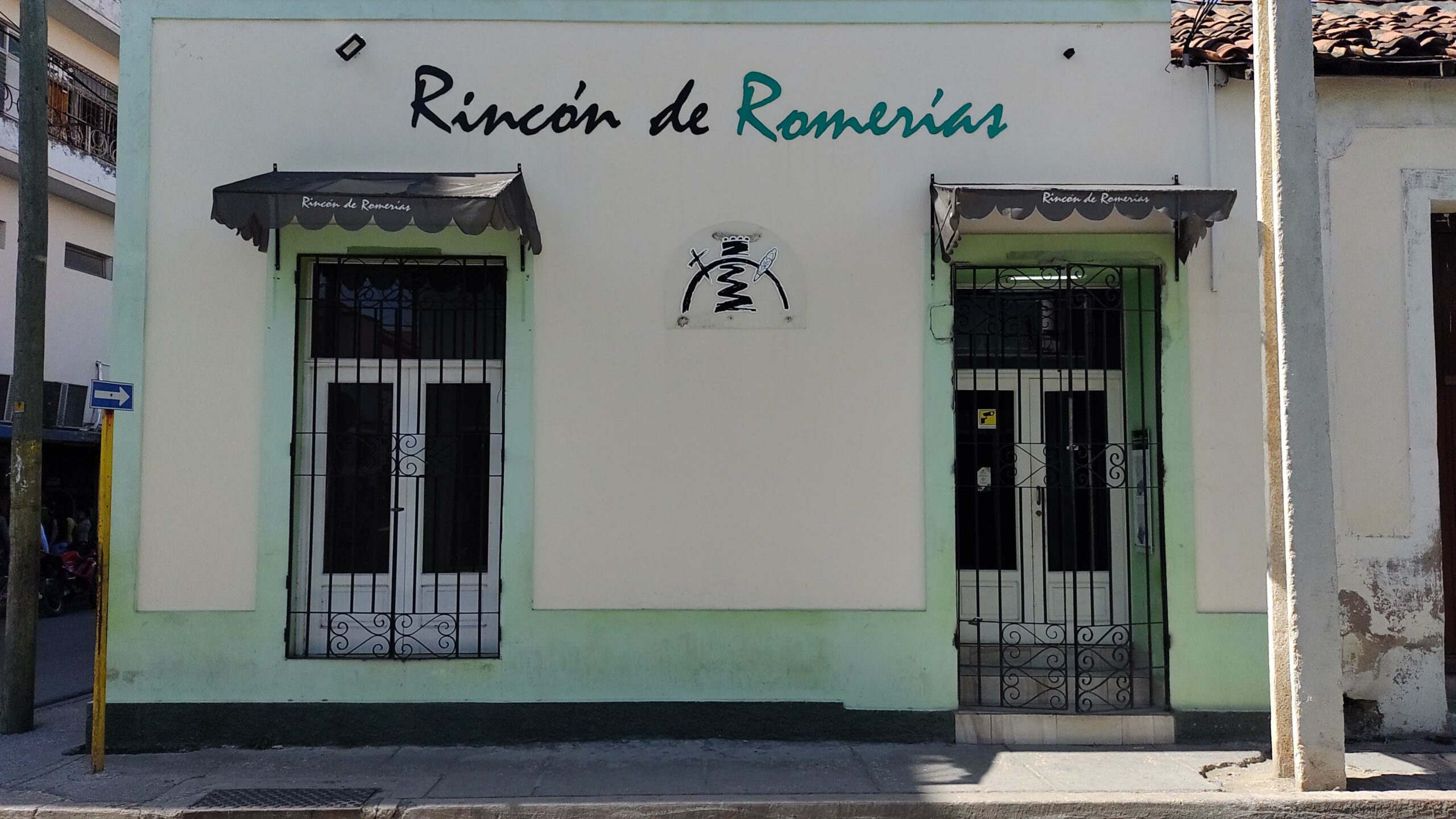
“Holguín seems like a dead city, without gastronomic or cultural proposals. This is very sad,” he told CubaNet a young woman dressed in the ETECSA uniform who was leaving work at the end of Sunday afternoon while crossing the central Calixto García park.
“1 space for self-employment is rented”, posters like this abound throughout the city. “Mine has been hanging for almost a year. This place is central and with a lot of people. Here I have space for a cafeteria, but no one has wanted to start a business. They say that it is very difficult to obtain the resources to make the products. Several have started and given up because it leaves them losses”, says the owner of the place.
